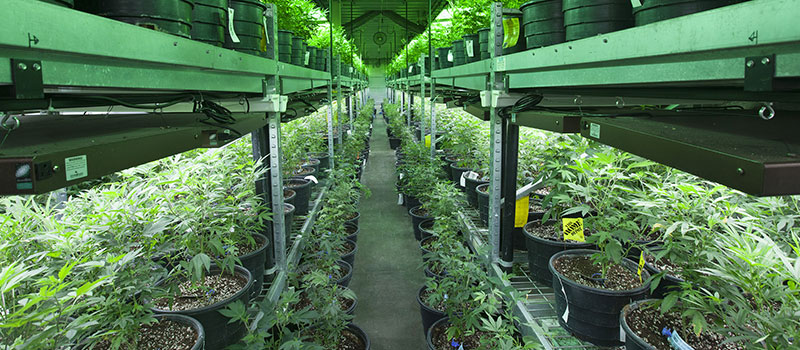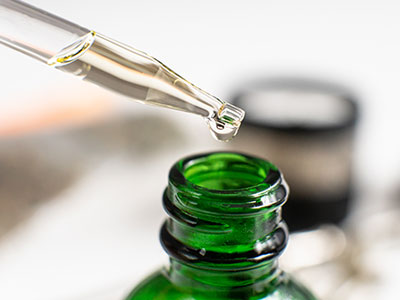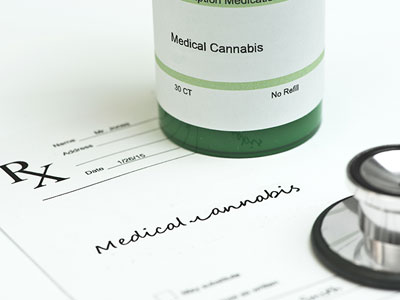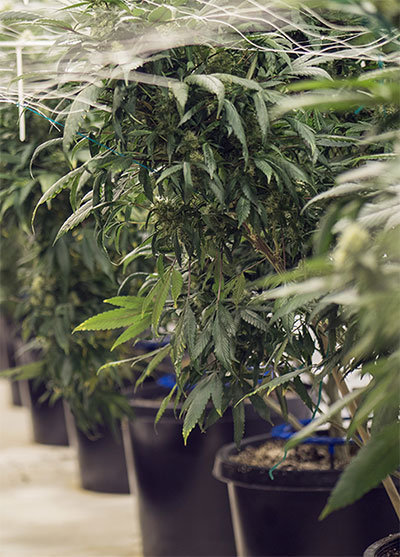Medical marijuana may be administered in oil and liquid form, among other delivery methods, but not in dry leaf form or as edibles.
Medical marijuana may be administered for a number of serious medical conditions.
How it Works
Pennsylvania's medical marijuana program (authorized under Act 16) is administered by the Pennsylvania Department of Health, which issues permits, registers practitioners, performs regulatory and enforcement functions, and other activities. Act 16 allows medical marijuana to be administered in the form of pills, oils, topical applications, vaporization, tinctures, liquids, but no dry leaf or plant forms and no edibles are permitted. Act 16 requires different permits for medical marijuana growers and medical marijuana dispensaries. Municipalities must have zoning regulations in place for each type of activity before the Pennsylvania Department of Health will consider applications.
Benefits
Treatment of Medical Conditions
Medical marijuana is prescribed by physicians for a variety of serious medical conditions such as cancer, HIV/AIDS, post-traumatic stress disorder, epilepsy, nerve injuries, intractable pain, autism, and others.
Economic Opportunities
Growing and processing medical marijuana can create opportunities for local investment and employment.
Opportunities for Reusing Buildings
Pennsylvania Act 16 requires that medical marijuana growing, processing and distribution must be conducted in indoor, enclosed, secure facilities. Underutilized warehouses and strip-mall shopping centers have been adaptively reused for these purposes.
Recycled Resources
Indoor growers/processors can potentially reuse irrigation water, latent heat, carbon dioxide, solar and wind power.
Medical marijuana must be grown indoors in an enclosed, secure facility.
Get Started
A municipality's medical marijuana regulations must reflect the provisions in Pennsylvania Act 16, which includes specific provisions for medical marijuana Grower/Processors and medical marijuana Dispensaries. Municipalities should ensure their zoning regulations are consistent with the provisions of the Act (Act 16 includes additional regulations not listed below). Section 2107 of the Act provides the information most relevant to zoning considerations.
A municipality may prefer to keep its medical marijuana zoning regulations fairly basic and reference Act 16 for the details rather than repeating all of the regulations in the ordinance. This approach would help ensure that the ordinance language does not become outdated if the Act is amended.
Zoning Regulations Applicable to Medical Marijuana Grower/Processors
- A grower/processor may only grow, store, harvest or process medical marijuana in an indoor, enclosed, secure facility which includes electronic locking systems, electronic surveillance and other features required by the Pennsylvania Department of Health.
- A grower/processor must meet the same municipal zoning and land use requirements as other manufacturing, processing and production facilities that are located in the same zoning district.
Zoning Regulations Applicable to Medical Marijuana Dispensaries
- A dispensary may only dispense medical marijuana in an indoor, enclosed, secure facility.
- A dispensary may not operate on the same site as a facility used for growing and processing medical marijuana.
- A dispensary may not be located within 1,000 feet of the property line of a public, private or parochial school or a day-care center (this provision can be waived by the Pennsylvania Department of Health if it is necessary to provide patients with adequate access to medical marijuana).
- A dispensary may sell medical devices and instruments which are needed to administer medical marijuana.
- A dispensary must meet the same municipal zoning and land use requirements as other commercial facilities that are located in the same zoning district.
Considerations
The Pennsylvania Medical Marijuana Law specifically addresses zoning for medical marijuana. A municipality must apply the same zoning and land use requirements as other manufacturing, processing, production facilities and medical dispensaries (pharmacies) that are located in the same zoning district to a grower/processor and dispensary.
Appropriate Locations
Municipalities should decide where grower/processor and dispensary activities and uses that are similar in nature should be permitted. In general, good roadway access is important and separation from incompatible land uses such as residential areas should be considered. Security should also be part of the determination.
Level of Zoning Approval
Municipalities will need to determine whether medical marijuana grower/processors and medical marijuana dispensaries will be permitted by conditional use, by special exception, or by-right. If regulated by conditional use or special exception, the Pennsylvania Municipalities Planning Code (MPC) allows municipalities to apply reasonable conditions and safeguards, in addition to those expressed in the ordinance (See MPC Section 913.2(a) for conditional use approvals and Section 912.1 for special exception approvals). However, municipalities must not apply burdensome or excessive regulations to medical marijuana facilities that are not typically applied to other manufacturing, processing, production, or dispensing facilities that are located in the same zoning district.
Additional Conditions and Safeguards
While municipalities must ensure that additional conditions and safeguards are not in excess of those applied to similar facilities in the same zoning district, there are additional safeguards and conditions that may be appropriate if they are commonly applied to similar facilities, such as:
- No exterior advertising or sidewalk displays, other than other signage typically permitted in the zoning ordinance.
- No drive-through, drop-off, or pick-up services.
- No use of medical marijuana on the premises.
- No emission of dust, vapors, or odors.
- A waste disposal plan could be required.
- Adequate off-street parking must be provided.

Upper Uwchlan Township Zoning Ordinance.
Medical marijuana dispensaries are regulated in the C-1 Village, C-3 Highway Commercial Districts. Medical marijuana grower/processors are regulated in the LI Limited Industrial and PI Planned Industrial/Office Districts.
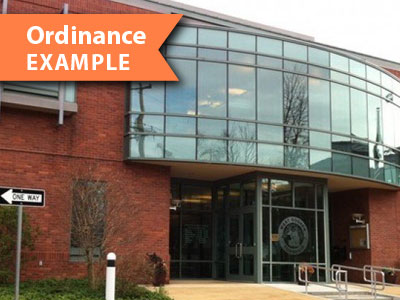
West Goshen Township Zoning Ordinance.
Medical marijuana dispensaries are regulated by the Township Zoning Ordinance in the C-1 Neighborhood Commercial, C-2 Commercial Shopping Center, and in the C-5 General Highway Commercial Districts. Medical grower/processors are regulated in the I-3 General Industrial District.
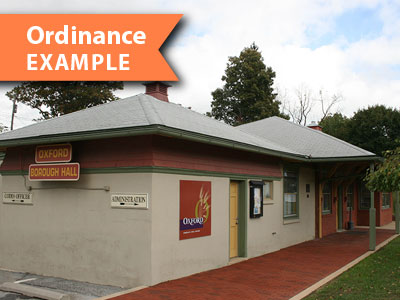
The Borough of Oxford adopted a zoning ordinance amendment regulating medical marijuana.

The Tri-County Regional Planning Commission (Cumberland, Dauphin and Perry Counties) prepared a model medical marijuana ordinance.


